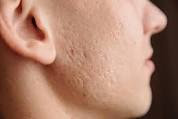Eczema : Causes, Symptoms, and Effective Treatments
Eczema, also known as atopic dermatitis, is a chronic skin condition characterized by inflammation, itching, and discomfort. It affects millions of people worldwide, regardless of age or gender, and can significantly impact one's quality of life. In this comprehensive guide, we'll explore the underlying causes of eczema, delve into its common symptoms, and discuss various treatment options to help manage and alleviate this often debilitating condition.
Causes of Eczema:
Genetic Predisposition: Genetic factors play a significant role in the development of eczema. Individuals with a family history of eczema, asthma, or allergic rhinitis are more likely to inherit a predisposition to atopic dermatitis.
Immune System Dysfunction:
Eczema is associated with an overactive immune response, leading to inflammation and irritation of the skin. Certain immune system abnormalities, such as defects in the skin barrier function and dysregulation of inflammatory pathways, contribute to the development and persistence of eczema symptoms.
Environmental Triggers: Environmental factors, such as exposure to allergens, irritants, and pollutants, can exacerbate eczema symptoms. Common triggers include dust mites, pet dander, pollen, mold, harsh chemicals, and temperature changes.
Dry Skin: Individuals with eczema often have dry, sensitive skin that is prone to irritation and inflammation. Deficiencies in the skin's natural moisturizing factors, such as ceramides and filaggrin, compromise the skin barrier's integrity, making it more susceptible to moisture loss and environmental damage.
Stress and Emotional Factors: Psychological stress and emotional factors, such as anxiety, depression, and chronic stress, can worsen eczema symptoms by triggering inflammatory responses and exacerbating itching and scratching behaviors.
Symptoms of Eczema:
Itching (Pruritus): Itching is the hallmark symptom of eczema and can range from mild to severe. Itching often intensifies at night and can disrupt sleep patterns, leading to fatigue and irritability.
Redness (Erythema): Eczema-prone skin appears red, inflamed, and irritated due to underlying inflammation and increased blood flow to the affected areas. The severity of redness varies depending on the individual's skin type and the extent of eczema involvement.
Dryness and Scaling: Eczema-affected skin is often dry, rough, and scaly, with visible flaking and peeling. Prolonged scratching can further damage the skin barrier, leading to increased dryness and exacerbation of eczema symptoms.
Rash and Blisters: Eczema can manifest as a rash of small, red bumps or raised lesions that may ooze, crust, or weep clear fluid when scratched. Blisters may also develop, particularly in acute flare-ups or in response to certain triggers.
Thickened Skin (Lichenification): Chronic scratching and rubbing of eczema lesions can lead to thickening and hardening of the skin, a condition known as lichenification. Thickened skin is more prone to cracking, fissures, and secondary infections.
Treatments for Eczema:
Moisturizers: Regular moisturizing is essential for managing eczema and maintaining skin hydration. Emollients, ointments, creams, and lotions containing ingredients such as ceramides, glycerin, and hyaluronic acid help restore the skin barrier and prevent moisture loss.
Topical Corticosteroids: Topical corticosteroids are commonly prescribed to reduce inflammation and itching associated with eczema flare-ups. These medications come in various strengths and formulations and are applied directly to the affected areas for short-term relief of symptoms.
Topical Calcineurin Inhibitors: Calcineurin inhibitors, such as tacrolimus and pimecrolimus, are non-steroidal medications that suppress the immune response and reduce inflammation in eczema-affected skin. They are often used as second-line treatments for mild to moderate eczema or in areas where corticosteroids may be less effective or unsuitable.
Antihistamines: Oral antihistamines may be prescribed to help alleviate itching and promote restful sleep, particularly during acute eczema flare-ups. Non-sedating antihistamines, such as cetirizine and loratadine, are preferred to minimize drowsiness and sedation.
Phototherapy (Light Therapy): Phototherapy involves exposing the skin to controlled doses of ultraviolet (UV) light to reduce inflammation, suppress immune responses, and improve eczema symptoms. Narrowband UVB therapy and PUVA (psoralen plus UVA) therapy are commonly used phototherapy modalities for eczema treatment.
Conclusion:
Eczema is a complex and multifactorial skin condition characterized by inflammation, itching, and discomfort. While there is no cure for eczema, various treatment options are available to help manage symptoms and improve overall skin health. By identifying and avoiding potential triggers, practicing good skincare habits, and following a tailored treatment plan prescribed by a healthcare professional, individuals with eczema can achieve better symptom control and enjoy a higher quality of life. It's essential to seek timely medical advice and support to address eczema effectively and minimize its impact on physical and emotional well-being.
Call now on our Mobile 8669086098 for booking an appointment
To know more about Dr. Amey Kelkar visit our website Derma Solutions




Comments
Post a Comment